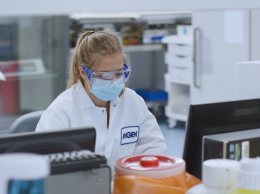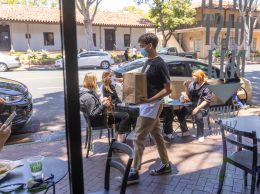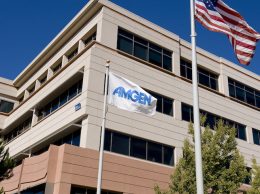With biotechnology firms thrown into disarray after the U.S. Food & Drug Administration’s approval last week of the industry’s first biosimilar drug, Thousand Oaks-based Amgen is making its first moves in restructuring to ensure a steady revenue flow amid an onslaught of competition.
On March 9, a company memo circulated by CEO Robert Bradway announced the company’s plans to shutter the San Francisco facilities once belonging to Onyx Pharmaceuticals, a company Amgen purchased in 2013 for its cancer drug Kyprolis, and lay off 300 employees there. The firm will instead reconsolidate oncology operations into its Thousand Oaks headquarters, with some of Onyx’s 450 remaining employees moving to Ventura County or to Amgen’s research facility in South San Francisco.
“To build on our competitive presence in the rapidly evolving oncology field, and as part of our ongoing transformation across the company, we have decided to combine Amgen’s scale and immuno-oncology expertise with Onyx’s highly successful approach to hematologic malignancies,” Bradway said in the memo.
Onyx’s 250 sales and medical staff members will be given the option of continuing their work with Amgen, and the firm has yet to determine the employment status of some 200 remaining employees. Amgen representative Cuyler Mayer said employees will be notified of their longer-term employment status by late April and the company is unsure at this point how many staff members will transfer to Ventura County.
Earlier this month, Onyx had released the positive results of a Phase 3 head-to-head study in which its flagship drug Kyprolis outperformed its rival. But Amgen is moving fast to adapt its operations for the new biotech landscape.
While the pharmaceutical industry at-large has a competitive environment with a variety of generic options, biologic drugs — synthesized from living organisms — are impossible to truly replicate and had until now been protected from competition. And Amgen is the unlucky company whose product will be put in the line of fire first: the first biosimilar to reach market is a drug known as Zarxio, developed by Novartis’ generics unit, Sandoz, that mimics Amgen’s chemotherapy drug Neupogen.
But this day had long been on the horizon, and once it had gave up lobbying against the adoption of biosimilars, Amgen prepared one of the industry’s most ambitious pipelines of biologic copycats. If everything goes according to plan, the company could have as many as five biosimilar treatments on the market by 2019.
But first, Amgen must address the effect biosimilars will have on its sales. Neupogen brought in $5.8 billion of the firm’s $18.1 billion in product sales for 2013, the year in which Amgen’s patent on it expired. Last year, it accounted for only $1.2 billion of that total.
“There’s already lots of competition, and we’re used to having to compete on value,” said Geoff Eich, executive director of Amgen’s biosimilars division. “This is the natural evolution.”
The company does have a small window before Zarxio is available — Novartis agreed to delay selling the biosimilar in the U.S. until a lawsuit with Amgen is resolved or until April 10, whichever is earlier.
Amgen is also one of the most vulnerable drugmakers to competition from biosimilars, along with Roche Holding AG and AbbVie, said Michael Yee, an analyst with RBC Capital Markets. All three have blockbuster biologic drugs that are near the 12-year mark that legally opens them to competition. But neither Roche nor AbbVie is developing its own biosimilars.
“There haven’t been situations where people are trying to straddle both sides of the fence” prior to Amgen, Yee said.
Amgen’s competitors are already seeking approval for alternatives to at least three other drugs in the company’s portfolio. Sandoz has submitted applications for knockoffs of Neulasta and Enbrel, while Lake Forest-based Hospira has applied for a biosimilar to Epogen.
Amgen itself is furthest along in testing a biosimilar of AbbVie’s best-selling Humira, which brought in $13 billion last year. But the company has eight other experimental biosimilars in the pipeline and said it expects about $3 billion in peak sales from biosimilar drugs.
“Wall Street probably isn’t giving sufficient credit yet for it because it’s relatively far out for investors,” Yee said. The drugs Amgen is targeting with its own biosimilar versions total about $45 billion in sales, he said.
– Bloomberg News contributed to this report.






 Print
Print Email
Email

















